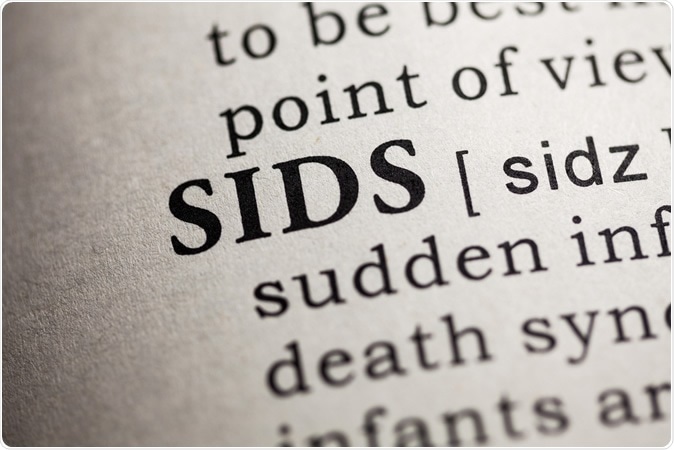Sudden infant death syndrome (SIDS), also called crib death or cot death, is the sudden and unexplained death of an infant less than one-year-old. There is no exact known cause of SIDS, but a recent study shows that mothers who smoked cigarettes and drank alcohol during pregnancy may have babies with a 12-fold increased risk of SIDS.

SIDS: Feng Yu / Shutterstock
The study, published in the journal EclinicalMedicine by The Lancet and supported by the National Institutes of Health (NIH), shows the link between smoking and drinking alcohol, and the increased risk of SIDS among infants.
Previous studies have suggested that maternal smoking during pregnancy may increase the risk of their children having SIDS. In other studies, alcohol intake during pregnancy has been linked to heightened SIDS risk.
The current study, however, looked at both risk factors that may affect their babies after birth. The study provides a glimpse of how SIDS risk is impacted by the timing and amount of prenatal exposure to alcohol and tobacco.
"Ours is the first large-scale prospective study to closely investigate the association between prenatal alcohol and tobacco exposure and the risk of SIDS. Our findings suggest that combined exposures to alcohol and tobacco have a synergistic effect on SIDS risk, given that dual exposure was associated with a substantially higher risk than either exposure alone,” Dr. Amy J. Elliott of the Avera Health Center for Pediatric & Community Research in Sioux Falls, South Dakota, said.
Importance of the early prenatal environment
The study sheds light on how cigarette smoking and heavy alcohol intake and their timing during pregnancy may affect the unborn baby’s health and the risk of having SIDS after birth. The team included about 12,000 pregnancies among women who were from two residential areas in Cape Town, South Africa, and five U.S. States, including two Indian reservations in North and South Dakota, as part of the Prenatal Alcohol in SIDS and Stillbirth (PASS) Network between 2007 and 2015.
The research settings were chosen since they were the ones with high rates of prenatal alcohol use and SIDS. The team identified and studies the one-year outcomes for approximately 94 percent of all pregnancies in the areas.
In the study, the team found that 66 infants died during the study period, including 28 SIDS deaths and 38 deaths of unknown causes. Further, they found that there is a 12-fold increased risk of SIDS from combined drinking and smoking beyond the first trimester of pregnancy.
There was also a five-fold increased SIKDS risk in babies whose mothers reported continuing smoking after the first trimester, and a four-fold increased risk in babies whose mothers reported drinking beyond the first trimester. The team compared the risk to infants who were not exposed to alcohol or tobacco during the pregnancy or whose mothers quit drinking alcohol or smoking by the end of the first trimester.
Pregnant women advised to stop smoking or drinking alcohol
The PASS study sheds light on the importance of abstaining from cigarette smoking and drinking alcohol during pregnancy. The Centers for Disease Control and Prevention (CDC) and the World Health Organization (WHO) recommend that women who are pregnant should not smoke or drink alcohol during pregnancy since these have been linked to infant morbidity and mortality.
“These findings provide still more evidence of the vital importance of the early prenatal environment to healthy postnatal outcomes. Insofar as many women quit drinking and smoking only after they learn that they are pregnant, this study argues strongly for screening for substance use early in pregnancy and intervening as soon as possible. It also calls for stronger public health messaging regarding the dangers of drinking and smoking during pregnancy, and among women who plan to become pregnant,” the NIH Institutes leaders said in a statement.
Journal reference:
Concurrent prenatal drinking and smoking increases risk for SIDS: Safe Passage Study report Elliott, Amy J. et al. EClinicalMedicine, Volume 0, Issue 0, 100247, https://www.thelancet.com/journals/eclinm/article/PIIS2589-5370(19)30256-1/fulltext